If we don't rebel, if we're not physically in an active rebellion, then it's spiritual death
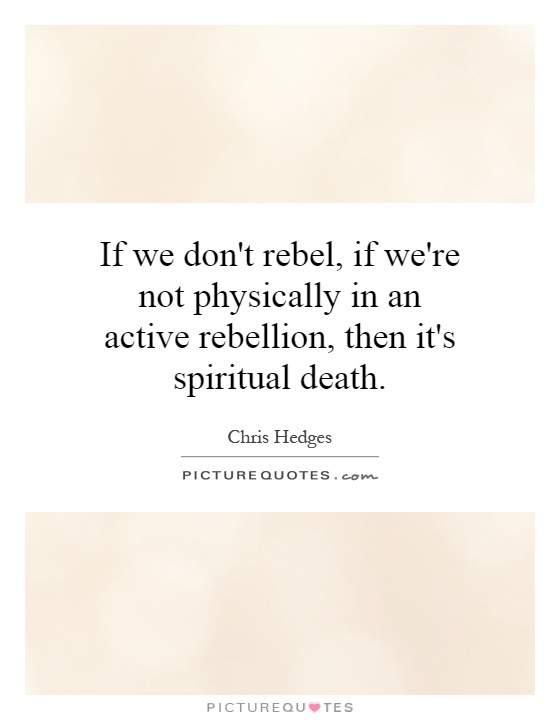
If we don't rebel, if we're not physically in an active rebellion, then it's spiritual death
Chris Hedges, a renowned American journalist, author, and activist, has long been a vocal advocate for rebellion against oppressive systems and structures. In his work, he often emphasizes the importance of resistance and rebellion as essential components of maintaining one's humanity and integrity in the face of injustice and tyranny. One of his most famous quotes, "If we don't rebel, if we're not physically in an active rebellion, then it's spiritual death," encapsulates his belief that passive acceptance of the status quo is tantamount to surrendering one's soul.Hedges argues that rebellion is not just a political act, but a spiritual one as well. By standing up against injustice and oppression, individuals are asserting their autonomy and dignity as human beings. They are refusing to be complicit in systems that dehumanize and exploit others. In this sense, rebellion is a form of self-preservation, a way of asserting one's humanity in the face of dehumanizing forces.
Hedges also warns against the dangers of complacency and apathy. He believes that when people become resigned to their circumstances and stop fighting for a better world, they lose a part of themselves in the process. They become spiritually numb, disconnected from their own sense of agency and purpose. In this state of spiritual death, individuals are more susceptible to manipulation and control by those in power.
For Hedges, rebellion is not just a means to an end, but an end in itself. It is a way of reclaiming one's humanity and asserting one's right to live a life of dignity and freedom. By engaging in acts of resistance, individuals are not only challenging the status quo, but also affirming their own worth and value as human beings.

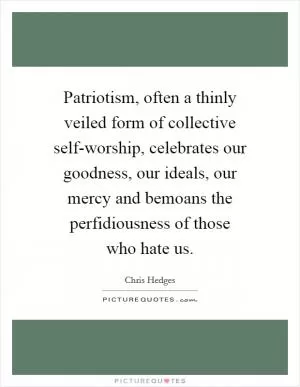
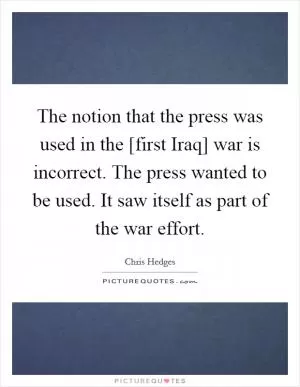


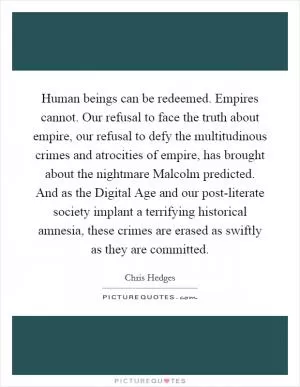



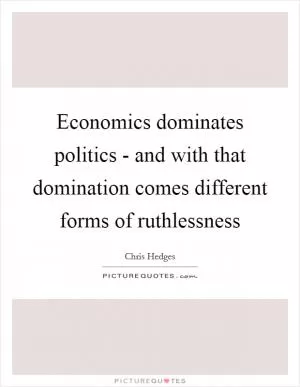
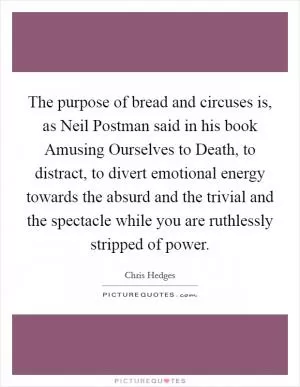

 Friendship Quotes
Friendship Quotes Love Quotes
Love Quotes Life Quotes
Life Quotes Funny Quotes
Funny Quotes Motivational Quotes
Motivational Quotes Inspirational Quotes
Inspirational Quotes